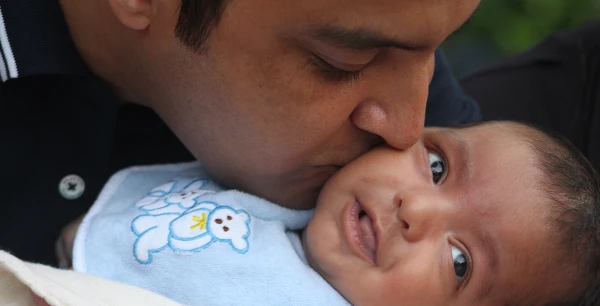
In today’s society, it’s common to hear the word “sleep coaching” used interchangeably with the term “sleep training,” especially in the world of sleep — or should I say sleep deprivation? But if you encounter a Gentle Sleep Coach you’ll more than likely hear her talk about sleep coaching vs. sleep training. You’ll probably start to wonder what the difference between the two might be.
Well, sit right down and let me explain!
What is “Sleep Training”?
Sleep training means that your little one must learn the skill of putting himself to sleep all by himself. Techniques such as controlled crying, extinction, fading, graduated extinction and “no cry” are all lumped under the process of “sleep learning”. This can leave you frustrated, trying to figure out the right method for you and your family. Unfortunately, over the years, the meaning of “sleep training” has shifted to basically mean babies are to be left alone to “cry it out” without any comfort or support. It can become confusing to know and understand what method of sleep learning might work best for your child when it’s left up to him to do the “training.”
Children need coaching
Think about this. Children will learn to roll, crawl, and walk because you provide the opportunity and example for them to practice, practice, practice. Because you encourage them from the sidelines, they fall and they get right back up. They keep on trying. The only time they give up is when we as parents encourage them to give up. It’s pretty amazing to watch little ones persevere — even if there are some tears that happen during the process. You were “coaching” them through the entire learning sequence.
This same concept applies to sleep learning as well. Your little one owns the process while you encourage and guide him through it.
RELATED: The Sleep Lady Responds to a Sleep Training Study
Babies learn to sleep
Another aspect of coaching is the understanding that going to sleep is a learned skill. Babies learn this most easily at bedtime, and it takes practice both by parents and little ones. We know that when children can put themselves to sleep at bedtime, they can then apply that skill when they awaken during the night. Research shows that babies are ready for this kind of sleep learning after 6 months of age based on the stage of their brain development. However, just like with any other skill children will learn, they need parents to support and guide them.
This is the type of “sleep training” or “sleep education” that we may need to know and understand as we help our child learn the skill of putting himself/herself to sleep.

“Coaching” is a Mindset Shift
Gentle sleep coaching is more of a mindset shift. It’s a gentle way for you to learn your little one’s sleep cues. Then you can encourage him to learn how to use the tools you give him to naturally soothe and comfort himself to sleep on his own. That way naps and bedtimes don’t have to be traumatic events. There’s a trust that’s developed between you and your little one during the sleep coaching process — a trust that proves to him you’re there to support him rather than coerce him. You can develop that trust through solutions like the Sleep Lady Shuffle. Your child learns sleep skills while you stay with them, offering physical and verbal reassurance. This leads to a lifelong bond and a relationship based on respectful communication that is healthy and beneficial for everyone.
Gentle Sleep Coaching
Now that you know the difference between “coaching” and “training”, here is a quick and simple guide to help demystify the various sleep coaching methods you can implement for your family. Just like with any successful team, it’s imperative to learn from an expert Gentle Sleep Coach. A coach has the education coupled with experience, and has a proven winning record to support YOU as you support your little one.
Your Gentle Sleep Coach will teach you how to be your child’s sleep coach and enable you to provide support and guidance to:
- Allow your child to learn how to put themselves to sleep at bedtime, and back to sleep during the night
- Think outside the box to come up with creative problem solving strategies that will work best for your family
- Stay focused on the process, not the outcome (although the outcome of sleep- filled nights will happen)
- Evolve with your child and be there to support their growth and new milestones
- Observe and see what’s working and what is not working and provide strategies to help you move forward successfully
- Ask questions to understand more about the sleep learning process.
What better team is there than parents supporting their children in one of life’s most precious and restorative commodities as sleep? Just imagine where you can go as a family when everyone is well-rested, trusting of each other, and able to communicate effectively.
Isn’t it time you become your child’s first and most important coach he’ll ever have?


